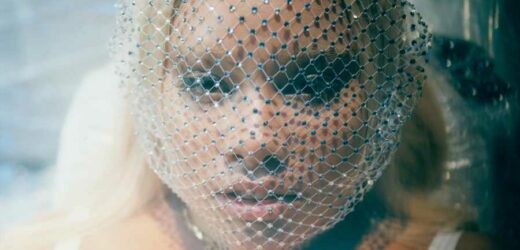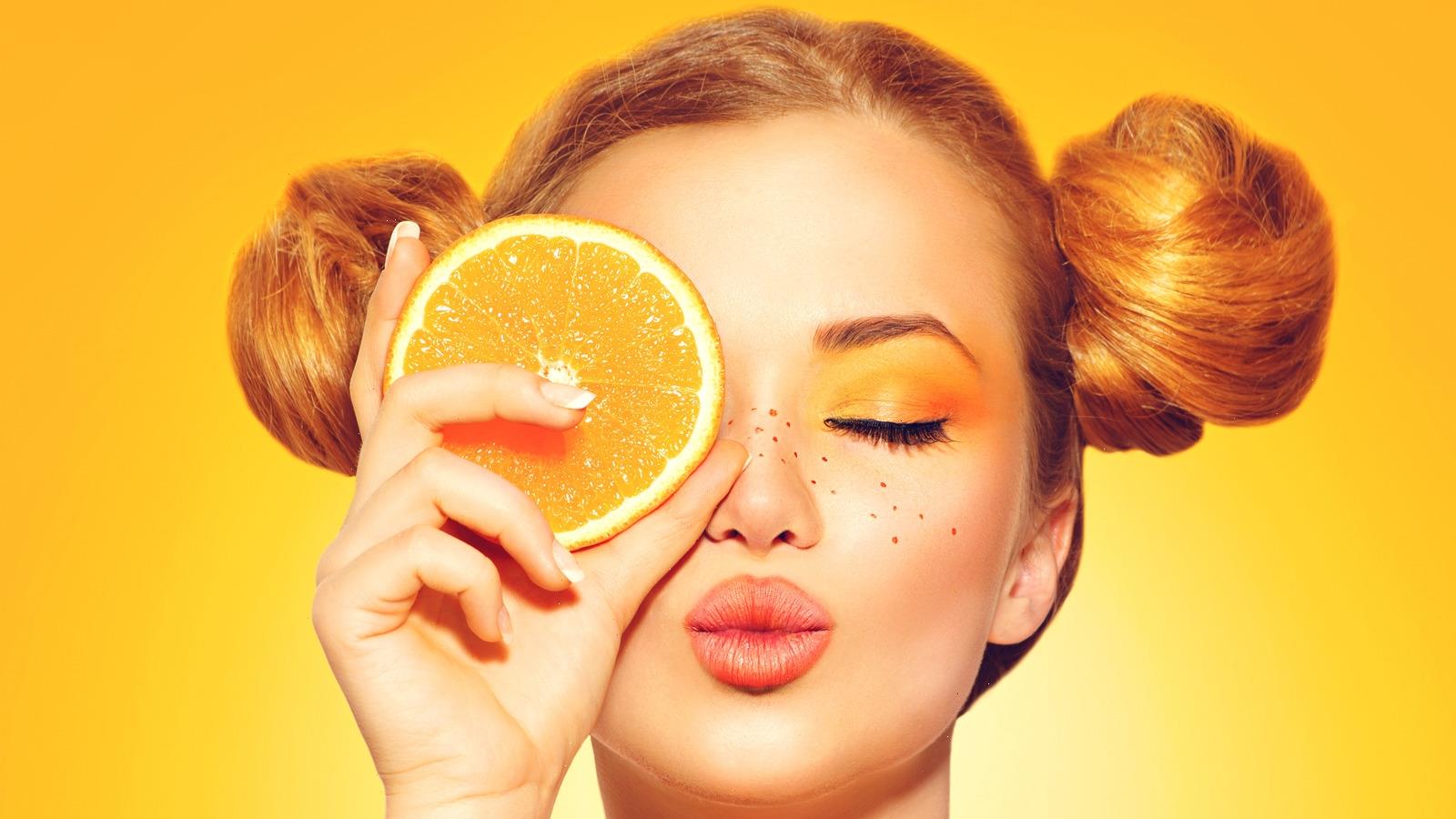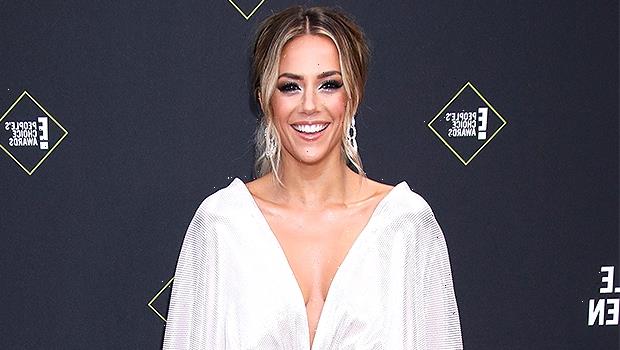As the world re-opens and live music and nightlife return, you can sense a significant shift of energy in the air. A fluctuation in the cultural mood. More people are returning to the summer parties and club nights that once cemented us in the present moment and reified our participation in living amongst other people. The artist and DJ Shygirl has emerged as the soundtrack to the moment. The 28-year-old musician has seen a steady rise in the U.K. Grime and queer club scenes and is known for her unique synthesis of the two. At one moment, she’s rapping over industrial house beats and at another, she’s floating on internet-y pop beats (SOPHIE was a prominent collaborator of hers, alongside Sega Bodega and Arca). Shygirl utilizes her deep vibrato and smutty lyricism to generate energy that’s raunchy and infectious. Naturally, her sharp and danceable sound has found an audience on Tiktok, where it’s rising in popularity in the same way that nightlife — and specifically, the underground club world — is experiencing its own kind of renaissance.
Shygirl’s upcoming live experience, Blu, is a short film that she conceived of and directed. It uses tracks from her critically-acclaimed 2020 EP Alias, as well as the debut of a new single, “BDE,” featuring the rapper Slowthai. Shygirl’s sound is a gift to our inner hot girls this summer, something we can all get down to in a time that we should use to celebrate being alive.
Shygirl talked to Rolling Stone about her inspirations, defying genre, the power of the dancefloor, and being a woman who doesn’t shy away from knowing what she wants.
To start, what are you up to this weekend?
Do you know what? I’ve been partying a lot lately, so this weekend I’m actually gonna be a bit more chill. When I work loads, I just get this urge. I’ll just wanna party a lot because it’s a quick way to chill out. This weekend I’m gonna meet up with my personal trainer. I’m still on this fake wholesome tip for the weekend. I’m making bargains with myself, basically, so I can just relax for a little bit and then get back onto my shit. I feel kind of out of the loop because I turned into a bit of a recluse, anyway, and I’ve just had people at my house but I haven’t really left the house that much.
How did you land on this specific visual context [of a short film] for your live experience, Blu? Was this your first time directing?
I’ve always done the treatments for all the music videos and then usually partnered up with someone to do co-directing because working with film crews is a minefield of misogyny [laughing]. I worked alongside Mischa Notcutt, and she’s been working with me on the whole of the Alias project, as well. It’s been really good just to have that support and make all my ideas better, to be honest. When you have someone to tell you, like, “No, that’s shit,” or, “That’s good.” It elevates everything. Having a partner to do that with, it really does allow you room to say the littlest idea that you think of and not have so many anxieties, because you’ve got this person to support you. [I also have a] background in videography, before I came to music. That’s what I did at uni and that’s how I met Mischa because I was assisting another photographer, Leonn Ward, at the time. So, all of that stuff I was doing well before music. It’s where I feel the most comfortable.
But also, at the same time, I probably put the most pressure on myself [visually] because music still feels like much more of an exploration for me — I don’t really know the limits of it. I still feel like I’m in an introductory phase, whereas visually, I’ve kind of always [strove for] perfection because you’re trying to recreate what’s in your imagination. And your mind is always so much better than reality.
How has the club scene influenced your approach to making music?
I’d been working at a modeling agency for three years, and I started DJing whilst I was there. I had links to fashion parties. I didn’t know what the fuck I was doing. Like, I literally just started learning on the job. It was fun. In that respect, it influenced me, because the way I approach music is [similar to DJing] in terms of how I’m selecting sounds and how the development of the track goes like I’m mixing within the track. When I first started making music, I didn’t have any technical terms. I was talking about energies and I was referencing soundtracks or beats. I’m still painting this picture of the club that I imagined long before I ever started being in them, you know? It’s what we chase when we go to the club, this idea I had when I was listening to club music when I was 12 or 13. You imagine this space where you’re free to completely be in tune with your body, the music, and just lose yourself. That is what I’m still trying to bring forth.
Maybe more important is my core friendship group [that I’ve met] in that club space. We’ll always have that connection of finding each other in that space, especially when you’re in the queer community. I sometimes think of the queer community as this elite group who managed to forge themselves through the flames of the club, you know? Something where people often associate loose morals and fast friends, but we’ve actually found family.
Have you met a lot of the producers through that scene, or more through the internet and social media?
I’m a really sociable person. [When I was still at] uni, I was interning at this design agency as a creative consultant, and one of the things we were doing was rebranding club entities. So through that, I wrote a blog and I ended up interviewing Sega Bodega at this gig, and then we just became friends. We’ve [now] been friends for over 10… Oh, I don’t even know. It feels like a long, long time, through our formative years and adulthood. When I first met him I was finding my feet. I’d just started clubbing and doing things by myself. I think I’d said to myself that year, “I just want to meet people.” And I met so many people when I was in that mood, you know? I would always say yes to things. That’s before I was making music. And then, in 2016 when I did start making music, those same friends were like, “Okay, do you wanna try something out? Like, call us.”
When I first started making music I felt so lucky to be around some people like SOPHIE, who I’d known for a long time; and then to gain their respect [in music], which is something I never thought I would have. I think sometimes you’re probably more self-conscious when you’re in proximity to so many talented people. I thought I was encroaching on their space. They didn’t [think that], and it’s still a constant surprise to me when someone reaches out, new or old, and respects what I’m doing.
It’s pretty crazy how organic your creative arc has been. From videography to photography and writing, I feel like it’s quite naturally folded into a music project.
It’s so nice because I don’t feel like I’ve been wasting my time before now, I actually had all the tools to help me settle into this thing that was so new. When I first started, me and Sega were just messing around in the studio and I was like, “Oh, I really enjoy this.” It was just fun. I’ve always been interested [in music] but never really needed to insert myself in it, and I obviously had a lot of friends who were making music. But I think music has this bubble around it, where you feel intimidated, or [that] there’s always someone who knows something more than you do. And that is true, but I think it’s also fine to not know that much and just have a feeling for it.
I got to the core of why I appreciated music or why it spoke to me. There’s something in music that is beyond language. I can write with all the lyrics I want, but ultimately the tone of my voice is telling someone how I’m thinking or feeling, and that’s what I find really beautiful — whereas with imagery I sometimes get caught up in the finer details. Music I can just get lost in. It’s something so much bigger than myself and I just really enjoy being a part of that. I do honestly feel like anything that’s worth doing in life — the things that you enjoy —because life is so short.
How has your mindset changed with making music since when you first started in 2016?
I have more ambition for things, sonically. Once you start doing anything you’re constantly testing your limitations and boundaries. The edges start to form of what you think you can or can’t do, and what you haven’t done yet, and what you want to do more of. When I first started making music I felt so reactionary, like I was treading the shallow end of this huge pool that was available to me. Especially with Alias, it felt way more directional. I had this feeling that I was following. With songs like “Slime,” where I was working with Sega and SOPHIE, at one point everyone was saying,”That’s done, sounds good,” and I was like, “It’s not done.” I know what I’m trying to make. I can’t explain it, but I know what I’m trying to do, you know? I had an inkling of it in the first EP, with “Asher Wolf”. I had to really push Sega to work on it ’cause he was like, “I don’t think this is good,” and I was like, “No, I know what it needs. It should sound like this.”
That’s what’s been really nice about collaborating with people, because if I was doing that by myself, who would I have to strengthen my opinion, even when they don’t agree and I really still feel it? But when it’s just you, how do you do that? Credit to people who do work by themselves, but I really enjoy the space that collaboration offers me. I feel like it’s quicker, like we get to the satisfied point so much easier. When I finished Alias I felt really proud. I was really happy with what was in front of me, the whole 360 of it, with the artwork [and the sound]. I had such a long period of time in lockdown to really work on it and I was like, “I don’t know when I’m gonna get that again,” and this actually feels tailor-made for me, this environment that I’ve been given. I wasn’t stressed about money, and so it was like: everything has kind of been set out for me.
Yeah. Especially with creating something as highly conceptual and multidimensional as Alias.
I always think of Alias as an exploration of self. I find that so interesting, to look at the fact that, with me making music, I can conceptualize myself, you know? I’ve become bigger than the banal reality of just me as a human. I just like being able to entertain myself like that. Especially after a year of being stuck with yourself, to say that you’re worth thinking about is actually a nice thing. I hope to continue that energy, because ultimately the more you put out and you dissect yourself or other people, you alter your path. You alter the space that you reside within and it brings new things to think about.
I’ve read that you often look to literature and books for inspiration. Is that what’s currently motivating you creatively?
I think it’s a part of my fabric, as a person. I grew up reading a lot, and so that has always informed how I see the world. I probably watch way more films than I read lately. But this idea of characters, or understanding people through characters, has probably always been ingrained within me from those foundations.
It’s reductive sometimes because people are more complex than characters in a book. I think I actually live off the energy of other people a little bit. There’s something about other people’s stories that fuel me slightly, and it makes me look at myself and how I fit in. I’ve always kind of thought of myself as someone who thrives off the energy of others, but also gives back to that — it’s an exchange.
For me, it reduces the anxiety about explaining myself to other people when I use characters [in my music] because at some level no one’s really gonna understand you. So that idea sometimes is a little bit terrifying, because you ultimately want to be understood. As much as anyone might tell you that you’re exceptional, I really like the idea of just being normal, you know? It’s way less lonely. Being exceptional is a very lonely place. It doesn’t feel that desirable.
What are your thoughts on the genre, Hyperpop? Would you say that your music fits into that or that it’s just a broad blanket statement?
No, I don’t really see it as a genre, to be honest. I feel like it’s not specific enough, and music just isn’t [genre-bound] anymore. I just think of it more as a playlist. The genre is less so about the music and more about image and the way you fit in socially and with your fanbase. [My music] crosses genres so much, but for the algorithm, it’s definitely easier to say Hyperpop.
Alongside Blu, you have a single, “BDE,” coming out with Slowthai. Can you tell me about the song?
Yeah, there will be a performance of it at the end of Blu. It’s my first song with a feature on it with Slowthai, which is fun. The only [collaborations] I’ve ever done are through myself and my real relationships because that just ends up being what works better for me. Because I come from it with such a personal angle, sometimes when you’re working with people, it’s like dating. You go meet up and see if you have a vibe and if you have to have chemistry. Me and Thai have chemistry, especially on this track, and he’s so fun to work with. It was really nice to see how he works, and after spending a year not really meeting people, I honestly have no clue what people will think of me from just the music alone and not meeting me [laughing].
So it’s always interesting when someone reaches out who’s another artist and they’re like, “I really like your stuff,” and then they meet you and really get on. It means you’ve explained yourself well, ’cause you’ve hit the right people. I’d already worked on the track with Karma Kid, the producer, and that track I made [was inspired by] being out from the night before. I’d been hooking up with this guy who was not satisfying me at all, and I think this need for satisfaction is something that speaks to my energy. I’m someone fueled by desire in all things, and when there’s something straightforward about not being satisfied in bed, it was easy to find the words to talk about that.
To really sum it up, it’s calling forth, saying: “I need satisfaction. Give me satisfaction in life.” It’s coaxing it out of someone, coaxing it out of life. The way I speak on that track and how I flip between being like, “This is all I need,” and “You’re the only one that can give it to me,” that’s how I move. Knowing what I want and asking for it. That’s why it was really fun to make it playful and make it about sex.
And I have set the arena. I think it’s fine as a woman, to be like, “This is what I want from you. I want you to defend yourself, I want you to push back at me and tell me where I’m wrong, and prove it to me. Show me that you are worth my time,” because it’s a lot more interesting than just hearing a guy have all the bravado by himself on the track.
I always feel like the lyrics are there to break the ice. I’ve said the most crass things. Anything goes in this arena, basically.
Source: Read Full Article


